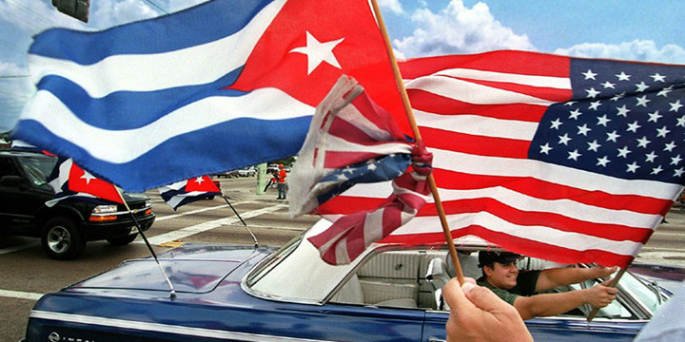
Is the Cold War turning into a Tepid War?
HAVANA — Next week, on Jan. 21, this capital city will be the stage for the round of talks that each semester brings together Cuban and U.S. government officials.
The agenda of these meetings has always been (officially, at least) limited to migration matters and timely issues of lesser importance. The meetings have also served to extend feelers on issues of greater weight.
The one that approaches, however, is different. The core issue — the reestablishment of diplomatic relations between the two countries — has already been defined by both presidents and applauded by the international community.
Roberta S. Jacobson, Assistant Secretary of State for Western Hemisphere Affairs, will head the delegation from Washington. She is the highest-ranking diplomatic official to visit Cuba in decades.
The Cuban side still has not published the name and rank of its chief delegate. We can assume that he or she will have an equivalent rank.
From a Cold War to a Tepid War
This encounter is an expression of the confrontation sustained for more than 50 years and comes, according to the presidential statements of Dec. 17, with the cards on the table — at least the public ones. Cuba does not renege on any of its principles and is willing to coexist harmoniously with the U.S., while respecting the differences between the political and government systems.
For its part, the United States acknowledged the failure of the policy it sustained for half a century. However, it has not renounced its objective: the modification of the Cuban system by other means — diplomatic talks and negotiations.
From those premises begins the new traffic, which, as I see it, will not be linear, along a long, straight highway.
Because of the number of problems accumulated in such a long dispute, the dialogues will not be free of stumbles, slowdowns, stops en route, zigzagging, potholes to be avoided or filled, and even reverse motion.
Washington knows well that the Cuban government has been gradually making changes and reforms in its economy. An in-depth analysis will reveal that these changes will lead to major reforms without the country losing stability or its own essence. The Cuban leadership is very aware of this.
Cuba can open even more in the economic front and needs financing, investments, commerce and technology. But, at what cost?
It is perfectly foreseeable that Washington will want to tamper with Cuba’s domestic policy to try to prevent a remake with the peculiarities of the successful experiences of Vietnam or China, 90 miles from U.S. shores.
It is also foreseeable that Washington, which has spent years acting as overseer, arbiter and judge of human rights and political freedoms (which it reduces at convenience and dictates according to the nation involved), will demand from Havana the full exercise of such rights and freedoms, with an emphasis on a multiparty system.
“Too bad that the U.S. government hasn’t done an appraisal of its own conduct on a topic as important as this,” a friend told me recently, outside Havana University.
It’s easy to predict that this issue will lend itself to arm-twisting, pressure and deals. Faced with them, the Cuban government will display its ability to differentiate principles from arguments that don’t qualify as principles.
The challenge could come, directly or indirectly, from subtle or outspoken messages from governments in our own region that the U.S. wants to keep in its orbit or bring back to it. However, the U.S. will find no support among nations that have been consistently critical of its disastrous policy toward Cuba.
Latin America as a whole has supported the reestablishment of relations and the start of a dialogue. Our region already has groupings of high importance that seek integration (Mercosur, CELAC, etc.), but these groups differ in the appreciation and interpretation of several issues, situations and peculiarities of the reality of their components.
Except for Cuba, all those nations have gone through the filter of electoral processes that are typical of practical democracy. Granted, some of those processes have been questioned. So, will those governments that emerged from the ballot boxes maintain a non-ideological attitude toward the current system on the island, in terms of representative democracy as it is practiced?
There is much to say and think about. Let us wait until Jan. 21 and until next April in Panama, where presidents Obama and Castro will come face to face.
There, in addition to the focus on U.S.-Cuba bilateral relations, we might see signs of how Latin America — with its ongoing changes and integrations, with its links to China, Russia and BRIC — fits into the grand and complex geopolitical stage that’s still developing around the world.
Are we passing from a Cold War to a Tepid War with multiple variants and instruments? I would like to see the Cuba-U.S. dialogue to be guided by common sense and pragmatism, with an emphasis on what’s coming, not on what separates us and pulls us apart.


